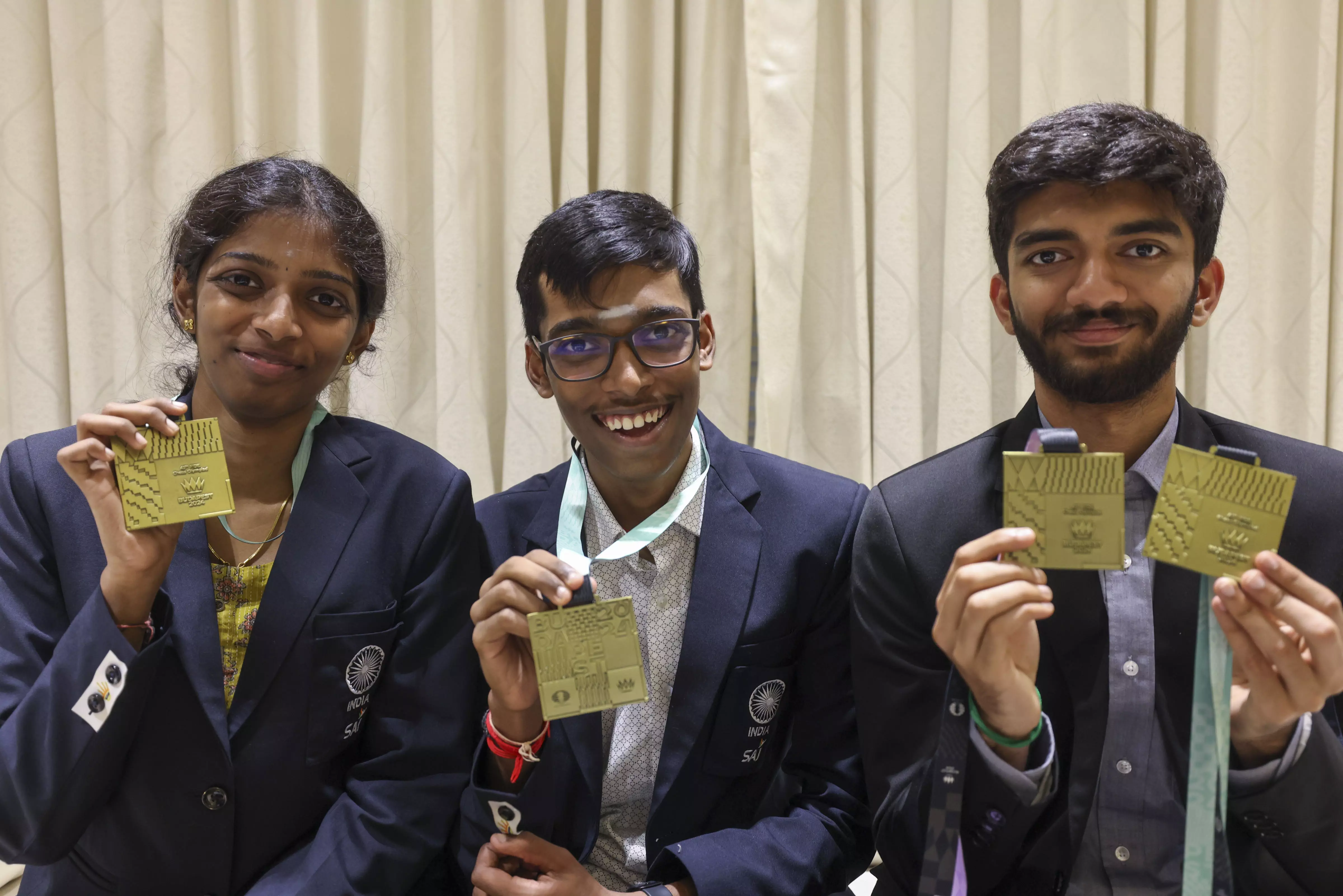DC Edit | A new world chess order rises

India’s double gold at the 45th Chess Olympiad has signalled the rise of a new world order in the cerebral game. As the legendary Garry Kasparov aptly put it, “Vishy’s children” have come of age, not only securing Viswanathan Anand’s enduring legacy but also elevating it to unprecedented heights. What Anand couldn’t achieve in his illustrious career, the young brigade has delivered in stunning fashion in Budapest.
Anand's influence extends beyond being a beacon of inspiration. Like the Soviet Union’s famed Botvinnik Chess School, Anand has meticulously nurtured Indian talent through his own academy, guiding young minds with invaluable camps — especially during the Covid pandemic — and arranging funds for their overseas travel. Fittingly, one of his proteges, D. Gukesh, who earlier clinched the Candidates Tournament to become the next World Championship challenger, has spearheaded India’s dominance at the Olympiad. Clinching all three trophies (including overall title), India stamped their supremacy in the field of 193 teams in the Open and 181 in the Women’s section.
The team of Gukesh (18), R. Praggnanandhaa (19), Arjun Erigaisi (21), Vidit Gujrathi (29), and P. Harikrishna (38) led throughout the tournament, winning 10 matches and drawing just one. For veterans like Harikrishna and D. Harika (33), the dream of winning the Olympiad took over two decades. For young Gukesh & Co., success has come rather swiftly.
The journey from last edition’s bronze to this year’s unprecedented sweep is a tale of extraordinary determination. Gukesh, with a mature head on his young shoulders, took the responsibility for narrowly missing out on the title in the previous edition held in Chennai. This time, he was resolute in his mission to make amends and what a way to do it!
With an astounding 9/10 score and a staggering 3056 performance rating, Gukesh has set a new benchmark. Not only did he become the only player to breach the 3000+ mark at the Olympiad, but he has also thrown down the gauntlet for the World Championship contest with Ding Liren, to be held in Singapore later this year. While R. Praggnanandhaa’s performance was solid, with six draws out of 10 games, it paled in comparison to the blistering form of Gukesh and Arjun. However, it’s this collective excellence that marks India’s ascendancy in chess.
The icing on the cake was the women's team making it a double gold in justifying their top seeding and pulling off a win despite a couple of less powerful performances towards the end. Their win here should prove inspiring for a new generation of women players to rise in the country. with age on their side, Indian players and the national teams could be capable of dominating world chess for some years to come.

